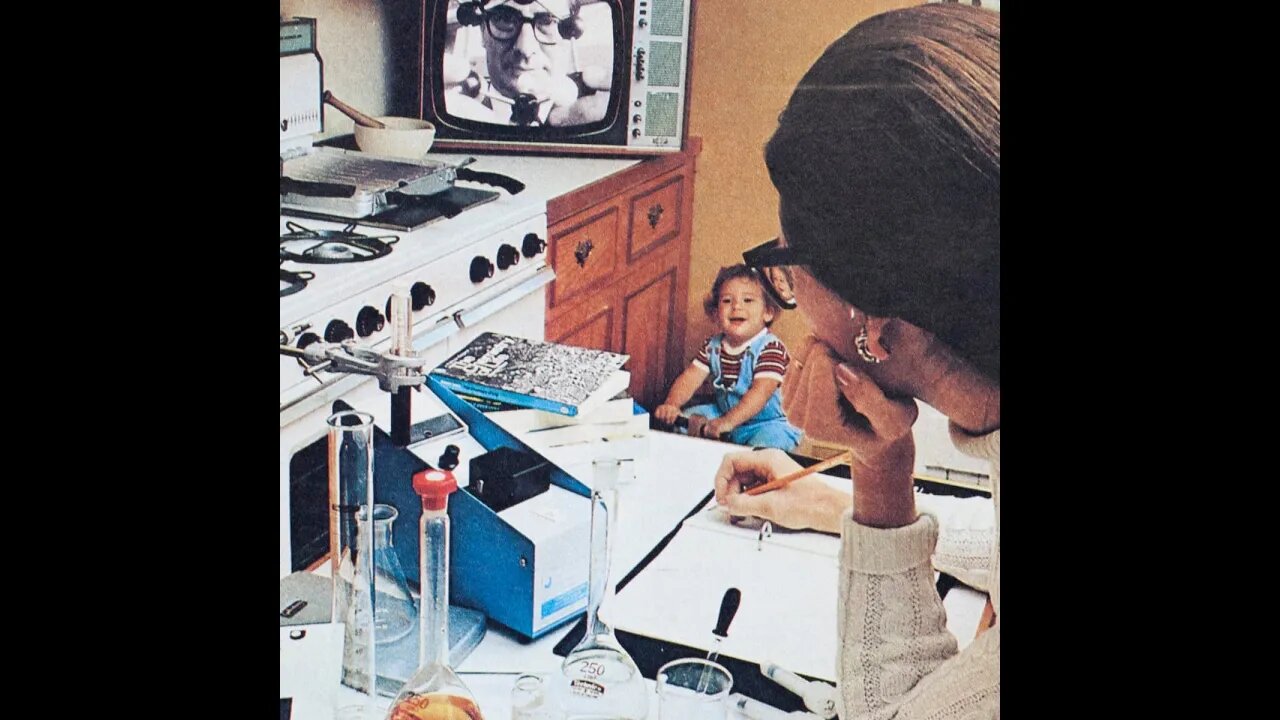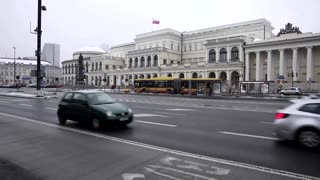Premium Only Content

OU Social Science Patterns Of Inequality Eastern Europe Access To Education 8 6 76
The Open University was founded by the Labour government under Prime Minister Harold Wilson. Wilson was a strong advocate, using the vision of Michael Young. Planning commenced in 1965 under Minister of State for Education Jennie Lee, who established a model for the OU as one of widening access to the highest standards of scholarship in higher education, and set up a planning committee consisting of university vice-chancellors, educationalists and television broadcasters, chaired by Sir Peter Venables. The British Broadcasting Corporation (BBC) Assistant Director of Engineering at the time James Redmond, had obtained most of his qualifications at night school, and his natural enthusiasm for the project did much to overcome the technical difficulties of using television to broadcast teaching programmes.
The Queen visits The Open University in 1979.
Wilson envisaged The Open University as a major marker in the Labour Party's commitment to modernising British society. He believed that it would help build a more competitive economy while also promoting greater equality of opportunity and social mobility. The planned utilisation of television and radio to broadcast its courses was also supposed to link The Open University to the technological revolution underway, which Wilson saw as a major ally of his modernisation schemes. However, from the start Lee encountered widespread scepticism and even opposition from within and without the Labour Party, including senior officials in the Department of Education and Science (DES), her departmental head Anthony Crosland, the Treasury, ministerial colleagues, such as Richard Crossman and commercial broadcasters. The Open University was realised due to Lee's unflagging determination and tenacity in 1965–67, the steadfast support from Wilson, and the fact that the anticipated costs, as reported to Lee and Wilson by Arnold Goodman, seemed very modest. By the time the actual, much higher costs became apparent, it was too late to scrap the fledgling university. The university was granted a royal charter by the Privy Council on 23 April 1969.
Source: Wikipedia
-
 0:45
0:45
Reuters
2 years agoU.S. troops prepare for deployment to Eastern Europe
3154 -
 4:13
4:13
KERO
3 years agoScience Sundays: Celebrating a Year of Science Education
17 -
 2:09
2:09
Reuters
2 years agoCOVID deaths in Eastern Europe surpass 1 mln
33316 -
 2:08:19
2:08:19
Tactical Advisor
16 hours agoThe Vault Room Podcast 006 | Farwell 2024 New Plans for 2025
178K11 -
 34:12
34:12
inspirePlay
1 day ago $5.45 earned🏆 The Grid Championship 2024 – Cass Meyer vs. Kelly Rudney | Epic Battle for Long Drive Glory!
80.3K8 -
 17:50
17:50
BlackDiamondGunsandGear
13 hours ago $2.61 earnedTeach Me How to Build an AR-15
54.9K6 -
 9:11
9:11
Space Ice
1 day agoFatman - Greatest Santa Claus Fighting Hitmen Movie Of Mel Gibson's Career - Best Movie Ever
114K47 -
 42:38
42:38
Brewzle
1 day agoI Spent Too Much Money Bourbon Hunting In Kentucky
76.6K12 -
 1:15:30
1:15:30
World Nomac
22 hours agoMY FIRST DAY BACK in Manila Philippines 🇵🇭
59.1K9 -
 13:19
13:19
Dr David Jockers
1 day ago $11.27 earned5 Dangerous Food Ingredients That Drive Inflammation
78.3K17